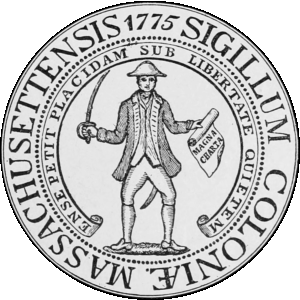
One of our social media posts and 250 Seconds highlighted the incredible historic parallels between the Barons revolt against King John in 1215 which resulted in the Magna Carta and the rebellion against King George III in 1776 which culminated in the Declaration of Independence and eventually the Constitution.
As fascinating as those parallels are, the grievances against both kings were, in many respects, even more striking. Consider this – grievances against both King John and George III included royal violations of due process and habeas corpus; abandonment of trial by jury and presentment of offenses by a grand jury; unlawful searches and seizures; quartering of soldiers in homes of civilians without permission; onerous taxes to fund foreign wars; and that most vexing of abuses, taxation without representation.
More than five hundred fifty years transpired between Magna Carta and the Declaration of Independence, yet the old grievances lingered. Did nothing change during that time? Was Magna Carta just a piece of parchment sealed by John to placate his barons? If so, why was it issued again in 1216, 1217, 1225 and even later, each time with modifications to meet new challenges? Why did our Founding Fathers refer to it with such confidence and reverence?
One could argue there was a defining difference between these two historical events – that is, the charges against King John and demand for redress were asserted primarily by and on behalf of the barons, the elites of medieval England; while the complaints against George III came from the people themselves. But even this distinction cannot answer our questions.
The answer lies in the fundamental principles upon which Magna Carta rests. Although modified and issued on several occasions after 1215, essential clauses endured, including the guarantee that actions taken against free men can be prosecuted only under “the law of the land.” Moreover, “justice and right” cannot be sold, denied or deferred to any man. Magna Carta is the foundation of “due process” and “the rule of law, not of men.”
The struggle between royal authority and the people did not end with Magna Carta. Those with power, including kings, are loathe to give it up. Even as the first colonists were settling in Jamestown and off the coast of Massachusetts, James I of Great Britain and his successors were defending the authoritarian “divine right of kings” against the challenges of Parliament and his own judiciary under the leadership of Sir Edward Coke.
Regarded as one of England’s greatest legal minds, Coke dusted off the Magna Carta and declared that not even a king is above the law. Moreover, he added, protections of Magna Carta apply equally to all subjects of the crown, not merely to the elite.. Confronting James’ successor, Charles I, Coke famously pronounced, “Magna Carta is such a fellow he will have no sovereign.”
Coke’s writings on the law were aboard the Mayflower in 1620 and constituted the basic textbooks for legal training throughout the colonies. John Adams and Patrick Henry were among the Founders who argued from Coke to support their opposition to the policies of George III. Thomas Jefferson and others noted that Coke’s writings prior to the Revolution were “the universal textbooks of law students.”
Coke’s writing permeated the literature of Revolutionary thought, always turning back to Magna Carta and the “ancient rights of Englishmen.” As early as 1638 Maryland requested permission to use Magna Carta as part of its law. William Penn, the founder of Pennsylvania, was the first to print it in the colonies in 1687. Decades later, in 1775, the Massachusetts’ state seal pictured a Minuteman holding a sword in his right hand and the Magna Carta in his left.
In 1765, while standing before Parliament to encourage repeal of the Stamp Act, Benjamin Franklin was questioned for more than an hour. When asked for the source of his argument, he responded simply ,” The common rights of Englishmen, as declared by Magna Charta, and the petition of right, all justify it.”
Magna Carta will be 810 years old on June 15, 2025.Magna Carta matters.
